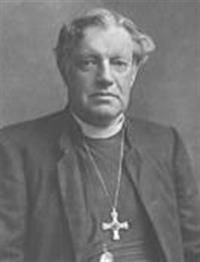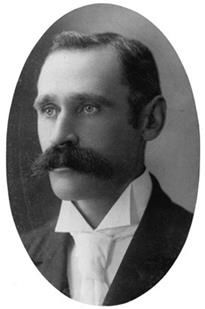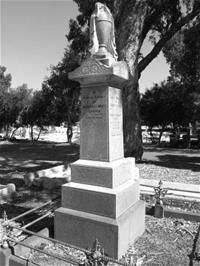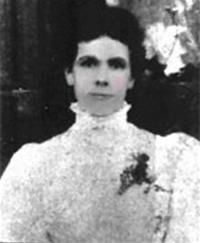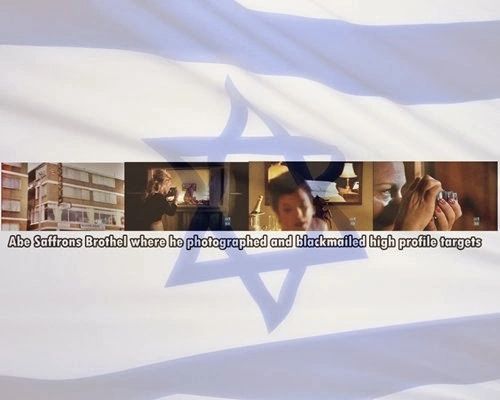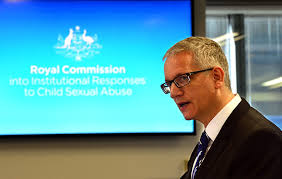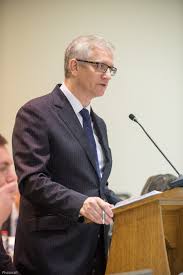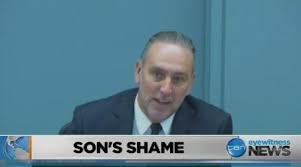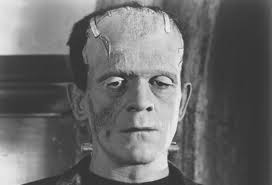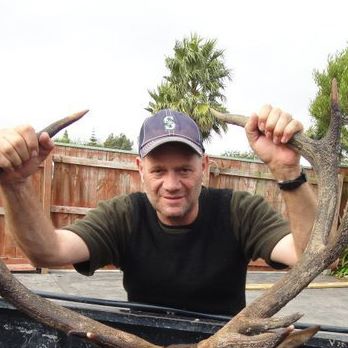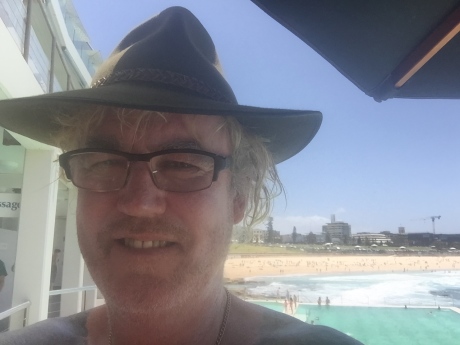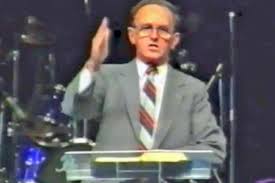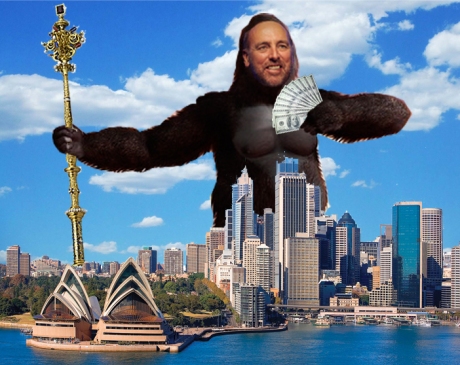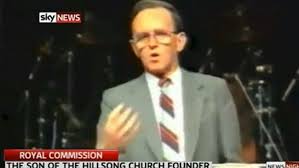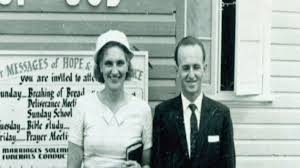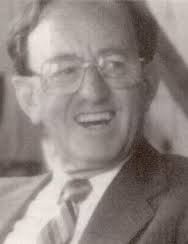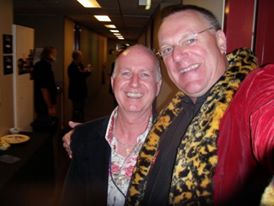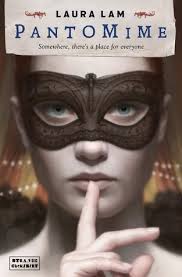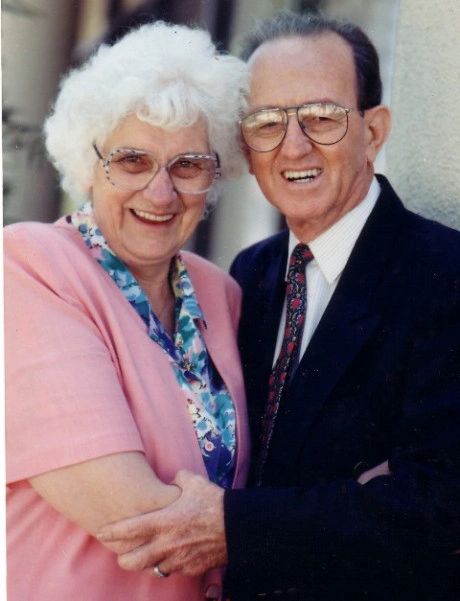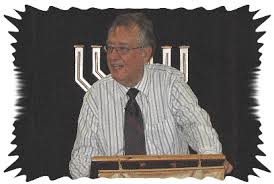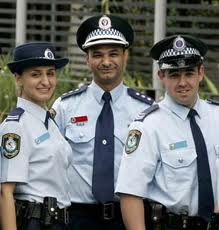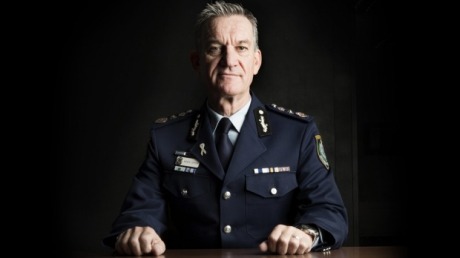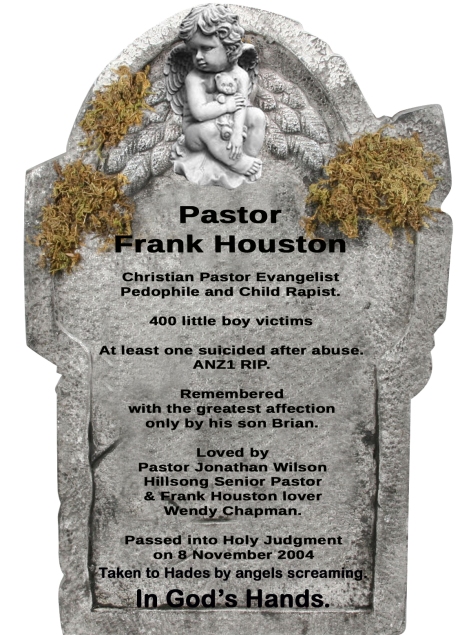Australian Federal Police- The First 30 Years
https://www.afp.gov.au/sites/default/files/PDF/afp-the-first-thirty-years.pdf
The AFP History Project Recognition and Ceremonial Australian Federal Police GPO Box 401 Canberra City ACT 2601. Emails regarding this document can be addressed to history@afp.gov.au Other contact information can be found on the AFP website: www.afp.gov.au
Cover Images
The cover design shows the six AFP Commissioners from 1979 to 2009.
From left to right they are:
Sir Colin Woods KCVO CBE QPM 1979–82
Major General Ron Grey AO DSO 1983–1988 Peter McAulay AO QPM 1988–1994 Mick Palmer AO APM 1994–2001
Mick Keelty APM 2001–2009 Tony Negus APM 2009–current
Dedication
This work is dedicated to the men and women of the AFP, sworn and unsworn, who over the past three decades have taken the AFP from an idea to a reality. By their daily commitment to protect the nation and its citizens, AFP members serve communities, not only in Australia, but in trouble spots around the world making the AFP a unique arm of Australian law enforcement.
About this Document
While the AFP is still relatively young, it has grown almost continually since 1979. In that time it has had to deal with constantly changing trends in technology and corporate structure in order to keep pace with Government expectations and the business of fighting crime in Australia and overseas. This document captures the facts and figures of the AFP’s growth since 1979. The report recommending the creation of the AFP written by Sir Robert Mark in 1978 in the wake of the Sydney Hilton bombing laid out the foundations for the AFP’s creation. That report was tapped out on an electric typewriter and printed as a small booklet for the Australian Government to consider. The distribution of this booklet was limited to the interested few. Australian Federal Police: The First Thirty Years is available to view on the World Wide Web and was created using technology that was impossible to imagine in 1979. This publication is a summary of the AFP’s history drawn from annual reports, media releases and other corporate documents; it does not offer an interpretation of the AFP’s achievements, leaving the facts to speak for themselves.
Contents i
Title Page iii
Dedication v Contents vii
Foreword viii Past Commissioners 1
Chapter 1: The Woods Years, 1979–1982 11
Chapter 2: The Grey Years, 1983–1988 25
Chapter 3: The McAulay Years, 1988–1994 35 Chapter 4: The Palmer Years, 1994–2001 53
Chapter 5: The Keelty Years, 2001–2009 83 Chapter 6: Time Line of Events, 1979–2009 143
Chapter 7: Key Facts, 1979–2009 177
Chapter 8: Before the Australian Federal Police 183
Index 188 Questions – Comments – Feedback
Foreword
Commissioner Tony Negus has been a member of the Australian Federal Police since 1982 working in a variety of fields, including community policing, federal investigations, training and protection. He has been the officer in charge of both the AFP Brisbane and Sydney offices, as well as heading up the AFP’s protection responsibilities. In July 2006, Commissioner Negus was appointed as the National Manager of Human Resources followed by appointment to Deputy Commissioner Operations on 19 October 2007. Sworn in as AFP Commissioner on 7 September 2009, Mr Negus has responsibility for the operation and direction of the AFP as well as serving on various boards for other law enforcement agencies.
When I joined the AFP in 1982, I was attracted to a career with the AFP principally because it offered a wider range of career possibilities in policing. At the time, the AFP was active in community policing, national investigations and international peacekeeping with the United Nations in Cyprus. As you read through the pages of Australian Federal Police: The First Thirty Years it is possible to see at a glance the incredible growth in the AFP’s role and capacity that has taken place over the past three decades. It is only with the passing of time that it is possible to gain perspective on how far the AFP has travelled. During the AFP’s early years a few fundamental principles were laid down; these included a spirit of interagency cooperation accompanied by expectations of high integrity and achievement. It is clear from the pages of this publication that those principles have blossomed with the AFP enjoying excellent interagency relations not only with Australia’s state police, but with law enforcement agencies around the world. This level of cooperation was deemed necessary by Sir Colin Woods and actively pursued by all subsequent AFP Commissioners. At 30 years-of-age the AFP has built its reputation on a tradition of high achievement and professional conduct. This is a legacy that we not only need to champion for ourselves, but in honour of those who have met the challenge before us.
Tony Negus APM Commissioner Australian Federal Police October 2009
Tony Negus APM Commissioner Australian Federal Police
Past Australian Federal Police Commissioners
Sir Colin Woods KCVO CBE QPM:
AFP Commissioner 1979–1982
After completing secondary school, Sir Colin Woods joined the British Army (60th Rifles) and was commissioned in the Royal Ulster Rifles (1939–1946). In 1946 he joined the London Metropolitan Police as a constable and after a policing career involving a range of appointments throughout the London Metropolitan Police, including Assistant Commissioner (Crime), he rose to the rank of Deputy Commissioner. Knighted in 1977, Sir Colin was also in that year appointed Her Majesty’s Chief Inspector of Constabulary in England and Wales – a position he held for two years. He was then selected to be the first Commissioner of the Australian Federal Police, travelling to Australia and being sworn in on 11 September 1979. Sir Colin was immediately faced with the task of melding two separate organisations, the former Commonwealth Police and ACT Police, into the fledgling AFP. Within a month of the commencement of AFP operations, the Federal Narcotics Bureau was disbanded and its functions and personnel were transferred to the AFP. He observed at the time that while various people had been preoccupied with the concept of a national Commonwealth policing body, his role was essentially concerned with people and how it would all come together on the ground. He was also instrumental in shaping the creation of the Australian Bureau of Criminal Intelligence. Sir Colin’s vision was for the AFP to be universally recognised as an organisation imbued with integrity and where members supported and encouraged each other. Sir Colin passed away at the age of 80 in London on 27 January 2001.
Major General Ronald Grey, AO DSO:
AFP Commissioner 1983–1988
Ron Grey was a career army officer who attained the rank of Major General in 1978. He served in Borneo, Korea, and had a number of tours of duty in Vietnam. For his service in Vietnam he was made a Companion of the Distinguished Service Order and was awarded the Vietnam Cross of Gallantry with Palm. During his five-year term with the AFP, Mr Grey served for one year as the chairman of the management committee of the Australian Bureau of Criminal Intelligence and led the Australian delegations to the Interpol annual General Assembly meetings. In May 1987, he became the first Australian police commissioner to make an official visit to the People’s Republic of China. His understanding and appreciation of international cooperation led to a major expansion of the AFP’s overseas liaison officer network during the period he was Commissioner, increasing the number of countries in which the AFP had posts from three to 12. He was also responsible for focusing government on the cost of crime and the resources required to cope with it. Another legacy of Mr Grey’s military background was a recognition of the value of strategic and tactical intelligence in the fight against organised crime – particularly drug trafficking.
Peter McAulay, AO QPM: AFP Commissioner 1988–1994 Peter McAulay joined the South Australia Police Force as a cadet in 1951 and in 1953 graduated from the South Australia Police Academy and subsequently served in a variety of city and community postings in both uniform and Criminal Investigations Branch. In 1968 Peter McAulay was seconded to the Commonwealth Police to serve in the Australian Police Contingent of the United Nations Force in Cyprus. After serving in Cyprus for a year he returned again in 1970 to command the multinational police force. After returning to South Australia and serving in a range of commands, Mr McAulay was appointed Northern Territory Police Commissioner in 1978. He served in this position until being appointed AFP Commissioner in 1988. Mr McAulay’s extensive knowledge of state police forces and the high regard in which he was held by other commissioners were critical to the development of the AFP as much depended on the cooperation received from other jurisdictions. Apart from the development of cooperative working arrangements, Mr McAulay introduced the first major reforms of the AFP including the employment of all personnel under the AFP Act, a reduction in the number of unions and awards and development of the unique AFP employment environment. During the McAulay years, the groundwork for future modernisation and change within the AFP was laid to ensure that the organisation was ready to face future challenges. Peter McAulay died from a respiratory illness on 14 November 1995.
Mick Palmer, AO APM :
AFP Commissioner 1994–2001
Mick Palmer joined the Northern Territory Police Service in 1963 as a constable and served until 1978 rising through the ranks to become an inspector in 1975. Between 1979 and 1982 he completed legal studies and was admitted as a Barrister at Law with Honours in Queensland in July 1982. From that time until late 1983 he practised privately in Queensland. Following his reappointment to the Northern Territory Police as a chief inspector in 1983, Mr Palmer served in a range of commands before being appointed Commissioner of the Northern Territory Police Fire and Emergency Services on 2 January 1988. In August 1984 he was admitted to practise as a Legal Practitioner of the Supreme Court of the Northern Territory. Mr Palmer was appointed AFP Commissioner in May 1994. In this role he implemented a major reform program to modernise the work practices and organisation structure of the AFP consolidating and extending the reforms of the previous commissioner, Peter McAulay and is recognised as having played a lead role in the professionalisation of policing across Australasia. He was a member of the group of Australian police commissioners that developed the first National Strategy for Police Professionalism in 1989. This strategy has proven instrumental in the development of policing in Australia to face the challenges of the 21st century. Mr Palmer was the Commonwealth’s personal nominee on a range of committees and boards including Deputy Chair of the Australian National Council on Drugs. In May 1999, Mr Palmer was awarded an Honorary Doctor of Letters from the Charles Sturt University in recognition of his outstanding leadership in the police service. He retired on 14 March 2001.
Mick Keelty, APM:
AFP Commissioner 2001–2009
Mick Keelty was sworn in as AFP Commissioner in 2001 becoming the first commissioner to be appointed from within the ranks of the AFP and only the second to have served two terms. The September 2001 terrorist attacks in the USA and the AFP’s investigation into the 2002 Bali bombings brought with them significant change to the AFP. The organisation expanded significantly taking on responsibility for counter terrorism, high tech crime, protective security and airport security, as well as peacekeeping and capacity building. Overseas deployments during Mr Keelty’s time as commissioner included Afghanistan, Sudan, East Timor, the Solomon Islands and Papua New Guinea and the continued expansion of the AFP’s International Liaison Network. In 2003, President Megawati Sukarnoputri presented Mr Keelty with Indonesia’s highest policing award in recognition of the AFP’s close cooperation with the Indonesian National Police in combating terrorism. Commissioner Keelty holds a Master’s Degree of Public Policy and Administration, a Graduate Certificate in Criminal Justice Education; he is a graduate of the FBI National Academy and a Fellow of the Australian Institute of Management. He received another overseas honour in 2008 when President Sellapan Ramanathan, presented him with Singapore’s Distinguished Service Order in recognition of his contribution to strengthening the working relationship between the AFP and Singapore’s Police Force in addressing regional transnational crime. Mick Keelty retired on 2 September 2009 having served Australian law enforcement for 35 years.
Acknowledgments
Australian Federal Police: The First Thirty Years, was created to mark the AFP’s 30th anniversary, The publication collates information drawn from 30 years of annual reports, media releases and a range of corporate communications in an effort to make historical information about the AFP as readily accessible as possible. In presenting this collected information, acknowledgment is given to the countless number of media and marketing officers, photographers and annual report coordinators who have continually recorded the efforts of the AFP over three decades. Much of the human story behind AFP’s history is available only as a result of those who have taken the time to contribute to Platypus magazine, AFP News and the various newsletters circulating within the AFP. Acknowledgment must also go to the dedicated few who have staffed the AFP Museum and steadfastly collected, documented and preserved the information, photographs and artefacts that provide the physical evidence of the AFP’s successes. Of course, there would be no history to record at all if it were not for the efforts of all those who in their own fields of endeavour have undertaken the often difficult tasks required of an AFP officer. Terry Browne Project Officer AFP Recognition and Ceremonial October 2009
Chapter 1: The Woods Years 1979–82
11 September 1979: Sir Colin Woods (right) being sworn in by Justice Blackburn at the ACT Supreme Court. – Courtesy of ACT Heritage Library: Canberra Times Collection
Appointed as the Commissioner of the Australian Federal Police (AFP) on 8 June 1979, Sir Colin Woods arrived in Australia in late July to meet with Jack Davis and Reg Kennedy, the respective commissioners of the Commonwealth Police and the Australian Capital Territory Police, as well as to meet with the key government officials involved in creating the AFP. Sir Colin returned to Australia accompanied by Lady Woods to start work in earnest in late August and by 1 September he had assembled the small team of the senior officers he needed to complete the final planning required to launch the AFP in 19 October 1979. On this date the Australian Federal Police Act 1979 was proclaimed, enabling members of the two former forces to be appointed to the two components which constituted the AFP; comprising 1134 to the general police component, and 1443 to the protective service component. The Commonwealth Police provided 544 investigators and the ACT Police 581 police officers to the general policing component with the protective service component comprised entirely officers who had previously performed a guarding role with the Commonwealth Police. By the end of the financial year the general policing component was 1275 and the protective service component was 1393. Supporting both groups of uniformed officers were 375 Public Service Act officers. In his first annual report to Kevin Newman, tabled in late 1980, Commissioner Woods told the newly appointed Minister for Administrative Services that from the outset, the divided structure of police and protective services officers had the potential to give rise to problems of morale. The situation was compounded less than one month after the AFP’s inception with the incorporation of the staff of the former Narcotics Bureau. On 6 November 1980, the Fraser Government announced that the Narcotics Bureau was to be disbanded and that responsibility for enforcing Commonwealth law against imported illicit drugs at the customs barrier, would remain with Australian Customs, but drug importations taking place elsewhere would be the AFP’s responsibility. Initially the Narcotics Bureau officers were employed with the AFP under the Public Service Act. Amendments to the AFP Act were required before 80 of the former Narcotics Bureau members could be offered appointment as police officers on 24 June 1980. Those former Bureau staff not appointed to police ranks continued to perform important intelligence, policy and administrative support tasks as Public Service Act staff in the Office of the AFP.
Industrial Relations In the AFP’s early days, a considerable degree of senior management effort was required to integrate the members of the three former organisations combined to form the AFP. Commissioner Woods reported to the Minister that the cooperation and readiness of the police and staff associations to work with management had been an important factor in the steady progress towards the achievement of a common identity. Already the two major police unions that served the ACT Police (The Federal Police Association), and the former Commonwealth Police (the
BEFORE THE AFP 1917–79
Commonwealth Police to form the short lived Australia Police.
The ACT Police then came back into being until its’ permanent amalgamation into the Australian Federal Police along with the Commonwealth Police and the Federal Bureau of Narcotics in 1979. The ACT Police was known variously as The Federal Capital Territory Police, The Commonwealth of Australia Police and the Commonwealth Police at different stages of its history.
Defence Establishment Guard 1935–1939 The Defence Establishment Guard (DEG) was formed under the Peace Officer Guard Act in 1935 after civilian watchmen went on strike along with the civilian workers at munitions factories. The Defence Establishment Guard was absorbed by the Peace Officer Guard in 1939 at the outbreak of World War Two. Commonwealth Security Service 1941–1945 Formed as a part of the British Empires intelligence network, the Commonwealth Security Service (CSS) came into being in 1941.
It carried out investigations and counter-espionage work as a “go between” agency for the Commonwealth Government, state governments and police, the armed forces and the Allies. In 1945, its’ functions and remaining personnel were absorbed into the Commonwealth Investigations Branch, the new organisation being known as the Commonwealth Investigations Service.
Commonwealth Investigation Service 1945–1960 The Commonwealth Investigation Service (CIS) was the primary Commonwealth law enforcement agency and intelligence service in the immediate post war period. The Commonwealth Investigation Service existed between 1945 and 1960.
In 1949, the functions of the former Commonwealth Security Service were separated into the new Australian Security Intelligence Organization (ASIO). In 1960, the CIS amalgamated with the Peace Officer Guard to form the Commonwealth Police.
Commonwealth Police 1960–1979 This organisation was the third Australian agency to be known as the Commonwealth Police; the previous two being Billy Hughes’ Commonwealth Police and the ACT Police. The force was made up of plain clothes detectives from the Commonwealth Investigation Service and the uniform members were from the Peace Officer Guard. The Commonwealth Police (COMPOL) existed between 1960 and 1975, when it was briefly a part of the Australia Police. It then carried on its’ functions until the final amalgamation with the ACT Police and the Federal Bureau of Narcotics in 1979. Australia Police 1975 The Australia Police Bill went before Parliament in March 1975.
The new force was to be an amalgamation of all Commonwealth Police Services into one agency. The Services in question were the ACT Police, the Commonwealth Police and the Northern Territory Police. The Bill was due for its’ second reading on the 11th of November 1975, the day the Whitlam Government was dismissed by the Governor-General.
The Bill was later rejected by the Fraser Government and the three Police services returned to their former roles. Federal Bureau of Narcotics 1969–1979 The Federal Bureau of Narcotics (FBN) was established as part of the Department of Customs in 1969. The role of the FBN was to combat the growing international drug trade.
The FBN established liaison posts around the world to cooperate with overseas law enforcement agencies in sharing intelligence that could be used against international drug traffickers.
Its functions and staff were amalgamated into the AFP in 1979. The preceding information was originally published by the Australian Federal Police Association and is used with permission.
The momentum for a federal policing service had been building for some time before the Australian Federal Police came into being on 19 October 1979.
The explosion of a bomb in front of Sydney’s Hilton Hotel, on 13 February during the 1978 Commonwealth Heads of Government Regional Meeting (CHOGRM) was the catalyst for federal government plans to create such a service. Following the Hilton bombing, Sir Robert Mark, a former Commissioner of the Metropolitan Police in London and Chief Constable of the City of Leicester, was commissioned to report on how Australia’s national policing needs could be best met. The result was the incorporation of the Commonwealth Police and the ACT Police into a new organisation to be known as the Australian Federal Police.
The functions of Custom’s Narcotics Bureau were transferred to the AFP on 7 November to complete the range of duties assigned to the AFP. The AFP’s first five years were characterised by attempts to assimilate or eject the various functions that had been inherited from the organisations involved in the amalgamation. Former guards, plain-clothed investigators, uniformed police and detectives had to fill the gaps in their training quickly. By 1984, the function of guarding Commonwealth buildings that had come to the AFP as a component of the Commonwealth Police was proving inappropriate to the AFP’s main charter, so a separate government entity, the Australian Protective Service, was created to provide security to Commonwealth establishments.
This action of redefining and streamlining itself has proved a regular pattern in the AFP’s development.
The AFP’s coastal surveillance responsibilities came and went, while the number of international liaison posts rose from four locations in 1979 to almost 30 locations in 2003. The terrorist attacks in New York and Washington on 11 September 2001 began a world-wide revision of security which had its effect in Australia and in the role of the AFP particularly following the bombing of tourist destinations in Bali on 12 October 2002. To assist consolidate the AFP’s counterterrorism role the Australian Protective Service was integrated into the AFP on 1 July 2004.
13 February 1978: an explosion outside the Sydney Hilton, during the 1978 Commonwealth Heads of Government Regiona
This index covers Chapters 1-6 and 8, but does not include entries from Chapter 7 due to the numerous facts, figures and names contained there. Information is easily browsed in Chapter 7, but for detailed searching, an electronic version of this document exists on the AFP website. Go to: www.afp.gov.au and search for and look for the link to: Australian Federal Police - The First Thirty Years A ABCI, 6, 7, 10, 60, 86 Access and Equity Plan, 30 accommodation, 12, 14, 19, 20, 23, 64, 78 accrual budgeting, 52 ACT Community Policing, 51, 90, 96, 120 ACT Police (pre 1979) 2, 7, 12, 15, 95, 120, 144, 145, 147, 148 ACT Policing (post 1979), 22, 26, 28, 36, 64, 68, 73, 74, 78, 107, 119, 121, 122, 123, 125, 129, 130, 137 ACT self-government, 13, 15, 28, 93 Afghanistan 72, 78, 80, 188 AFP (Amendment) Act, 1984 89 AFP Adjustment Scheme (AFPAS), 94 AFP Amendment Bill 1996, 42 AFP Museum, 101, 102, 103, 117, 120 AFP Reform Program, 54, 57 AFP Services Centre, 4, 16, 51, 78, 85, 86, 88, 99, 109, 128, 133 see also Weston Complex Age Tapes, 89 AIDEX 98, 99 Air Security Officers, 67, 145 aircraft hijackings, 17 airport policing, 23 airport security, 17, 69, 96 Al-Ghamdi, Abdullah, 116 amalgamation, 3, 5, 15, 84, 144, 145, 146 Anzac Park West, 64, 78 arrangement for the provision of police services to the ACT, 30, 64 Asia Pacific Economic Cooperation (APEC), 73, 78 Asia-Pacific Group on Money Laundering, 67 ASIO, 70, 77, 81, 91, 101, 145 attrition rate, 33, 46, 47 Aum Shinrikyo, 107 Australasian Police Ministers’ Council (APMC), 85 Australasian Women Police Conference, 44 Australia Police, 145, 148 Australia’s Critical National Information Infrastructure, 63 Australian Anti-Terrorism Act 2005, 72 Australian Assisting Police, 66 Australian Bureau of Criminal Intelligence (ABCI), 58, 86 Australian Capital Territory (Self-Government) Act, 1988 93 Australian Capital Territory Police, 144 Australian Chemical Biological Radiological Nuclear Data Centre, 78 Australian Crime Commission, 56, 60, 128 Australian Federal Police (Legislative Amendment) Act No 2 1989, 28 Australian Federal Police Act 1979, 2, 26, 30, 43, 47, 84, 93 Australian Federal Police Act 1979, 84 Australian Federal Police Association (AFPA), 26 Australian Federal Police College, 110 Australian High Tech Crime Centre (AHTCC), 61, 67, 129 Australian National Audit Office (ANAO), 29, 30 Australian Police Medal 54, 79 Australian Police Ministers’ Council 69 Australian Protective Service (APS) 26, 56, 58, 60, 61, 68, 89, 91, 92, 95–8, 102, 127, 130, 145, 148 Australian Protective Service Act 1987, 92 Australian Protective Service Amendment Bill 2002, 127 Australian Transactions Reports and Analysis Centre, 71 Ayers, Tony, 49, 115 B Bali 63, 130 Bali 9, the 132 Bangkok 7, 84 Bates, Brian 31 Beazley Report 13 Beijing 47 Bender, Katie 112 Bjelke-Petersen, Sir Joh, 112 Black Saturday bushfires, 80, 140 bombing, Australian Embassy in Jakarta, 65 Bali 2002, 59, 60, 62, 127, 128, 129, 146 Bali, 2005, 69,132, 133 Hakoah Club in Sydney, 88 Hilton Hotel (Sydney) 9, 59, 180 Marriott Hotel Jakarta, 62, 129 bottom-of the-harbour tax avoidance scheme, 15, 88, 89 Bougainville, 66 Bradman, Sir Donald, 122 Bramshill House, 3 broad banding, 26 Broomby, Ian, 32 Builders Labourers’ Federation, 9 Burdett, Kathy, 93 Burma, 54 Bush, George (senior), US President, 101 Bush, George (junior), US President, 64 bushfires, Canberra, 128 Victoria, Black Saturday 80 Business Activity Analysis (BAA), 54 C Cahill, Ron, 28 Cambodia, 31, 69, 73, 80, 100 Career Structure Review (CSR), 26, 27, 92 Carmel Niland and Associates, 41 Cash Transaction Reports Bill 1987, 21 Castles, Shane, 74 Certified Agreement, 51, 58, 119 Change Implementation Team, 39 Change Management Steering Committee, 39 change process, 38 Cherney, Adrien, 49 Child Sex Tourism, 80 Cinque, Joe, 114 Clarke Inquiry (report), 77, 79, 139 Clarke, Alice, 112 client surveys, 56, 68, 74 Coastal Protection Unit, 13 coastal surveillance, 13, 89 Coastwatch, 93 Colombia, 54 Commissioner’s Medals for Innovation and Excellence, 64 Commissioner’s Work–Life Awards, 49 common classification structure, 30 Commonwealth Heads of Government (CHOGM), Coolum, 9, 57,126 Commonwealth Heads of Government Regional Meeting (CHOGRM), 146 Commonwealth Investigation Service, 145 Commonwealth Investigations Branch, 144 Commonwealth Law Enforcement Arrangements (CLER), 36, 39, 103 Commonwealth Ombudsman, 3 Commonwealth Police (COMPOL), 2, 145, 148 Commonwealth Police 1917–19, 144 Commonwealth Police Officers’ Association, 3 Commonwealth Security Service, 145 Complaints (AFP) Act 1981, 10 complaints, investigation of, 3 Conference of Commissioners of Police of Australasia and the South West Pacific Region, 19 Confiscated Assets Trust Fund, 38 control order, 72 Conway, John, 112 Conway, Ulrike, 112 Corporate Reform Program, 47 Costigan and Stewart Royal Commissions, 15 Costigan Report, 17 Counter Terrorism, 20, 62, 70 see also Terrorism
Counter Terrorism Capacity Building Project, 70 Counter Terrorism First Response, 67 Cowden, Marion, 54 Crime Stoppers, 110 Crimes (Fingerprinting) Act 1988, 37 Crimes Act 1958, 37 Crimes Amendment (Controlled Operations) Bill 1996, 42 Crimes Amendment (Forensic Procedures) Act 1998 (Cwth) ,47 CrimTrac, 116 cybercrime, 54 Cybercrime Act 2001, 61 Cyprus, 47 D Debus, Bob, 76, 82 Defence Establishment Guard, 144 demonstrations, 14, 87see also protests Department of Local Government and Administrative Services, 17 disaster victim identification, 66 Downer, Alexander, 61 Drug Harm Index, 68 Drug Liaison posts, 61 drug-free workforce, 43 Dubai, 63 Duffy, Michael, 96 Dujanah, Abdullah, 136 Dunning, Adam, 65 Durack, Peter, 10 E early cessation program, 46 East Timor, 47, 51, 55, 119 see also Timor-Leste Eastman, David, 28, 106 Economic and Special Operations, 81 e-crime, 52, 54 Edmund Barton Building (EBB), 78 efficiency dividend, 32, 33, 37, 45, 46, 58 Electronic Crime, 54 Elliot Report, 39, 104 Ellison, Chris, 54, 123 Enhanced Cooperation Program, 66 Enterprise Bargaining Agreement, 33 Equal Employment Opportunity (EEO), 41 Equity and Diversity, 48 Europol, 73, 136 executive exchange programs, 67 F Fagan, Audrey, 72, 136 Family Court, 15, 17 Farmer, Roy, 6, 30, 148 Federal Audit of Police Capabilities, 79 Federal Bureau of Narcotics, 145 see also Narcotics Bureau Federal Law Court protection, 13 Federal Police Association, 2 Fiji, 63, 65, 74 Finance and Public Administration, 36 fixed terms, 28, 30, 44, 93, 97 flexible teams-based structure, 56 Focusing on Fraud (the Elliot Report), 36 Fraser Coalition Government, 2, 12 Fraser, Malcolm, 9 Freedom of Information Act, 10 Fringe Benefit Tax, 32 functional management model, 65 functional model, 130 G Gay and Lesbian Issues in Policing, 49 global financial downturn, 82 globalisation, 45 Gold Coast office, 123 Grey, Ron, biography, vii career, Chapter 2 Grosvenor, Kathryn, 126 Guangdong province, 76 guarding function, 12 Gusmao, Xanana, 78 H Haiti, 38 Halliday, Geoff, 148 Haneef, Dr Mohamed, 77, 108, 137, 139 Hanoi, 47 Hanson Inquiry, 41 Hanswyk, David, 96 Hardwick, Anna, 129 Harrison Inquiry, 109 Harrison, Ian 42, 43 Havelock House, 14 Hawke Government, 12, 20 Hawke Government’s Drug Summit, 17 Hawke, Bob, 112 heroin shortage, 57 Hicks, David, 72, 136 Hilton Hotel (Sydney) 59, 148 High Tech Crime Operations (HTCO), 78, 80, 138 hijack, 90 Hill, Steve, 109 Hong Kong, 16 Horta, Jose Ramos, 78, 138 House of Representatives Standing Committee on Banking, 36 Howard Coalition Government, 41 Howard, John, 46, 74 Hughes, Andy, 74, 136, 137 Hughes, William Morris (Billy), 144 Human trafficking, 79 Humphries, Gary, 51 I Identity Crime, 71 Identity Crime Taskforce, 63, 67 illegal immigrants, 119, 122 illicit drug testing, 110 Indian Ocean tsunami, 66 Indonesia, 69 Indonesian National Police (INP), 57 intelligence capability, 33 intelligence-driven investigation, 50 InterFET, 51 International Activities, 22 International Deployment Group, 62, 63, 74, 130 International Deployment Group (IDG), 66, 68, 69 International Peacekeeping, 51 International Policing Toward 2020 Conference, 78, 137 International Training Complex, 66 International Working Group on Terrorist Financing, 67 International Youth Advisory Congress, 139 internet, 21, 50, 52, 55, 61, 82 Internet Child Pornography, 72 Interpol, 19 Interpol General Secretary, 119 Iraq, 66 Ireland, John, 148 Islamabad, 16 Islamic Liaison Team, 77 J Jakarta, 7, 12, 16, 84 Jakarta Centre for Law Enforcement Cooperation (JCLEC), 65, 81, 70 Jakarta Operations Centre, 70 Japan and South Korea, 69 Jemaah Islamiyah, 60, 127, 137 Jervis Bay, 33 Jintao, Hu, (Chinese President) 64 Johnson, John, 3, 148 Joint Asian Crime Group, 80 Joint Counter Terrorism Teams, 67 Joint Management Review, 17 Jordan, 63 Justice Hope’s Review, 5 K Kalejs, Konrad, 113 Keating, Paul, 31 Kendall, Ray, 119
Kennedy, Reg, 2 Keelty, Mick, biography, viii career, Chapter 5 Kerr, Duncan, 108 Kevin Newman, 2, 86 Kim Beazley, 12, 87 Kuala Lumpur,7, 12, 84 L Laos, 76 Law Enforcement and National Security (Assumed Identities) Act 1998 (NSW), 47 Law Enforcement Cooperation Program (LECP), 51, 66, 79, 115, 130 Lawler, John, 78 Lawler, Sir Peter, 148 Lebanon, 73 liaison network, 7, 12, 22, 30, 33, 45, 54, 65,145, 146 Lodhi, Faheem, 72 London, 7, 16 Los Angeles, 12, 87 Love Bug and Anna Kournikova viruses, 54 Loyal Regiment of Australian Guardians, 107 M management review, 13 Manila, 16, 19 Mark, Sir Robert, 146, 147, 148 Marriott Hotel, 62 McAulay, Peter, biography, viii career, Chapter 3 McClelland, Robert, 77 McLeay, John, 4 Measuring the AFP’s Performance, 71 Meat Industry, 9 media, leaks to, 20, 41 Medifraud, 88 Migration Act 1958, 54 Minister for Administrative Services, 4 Minister for Foreign Affairs and Trade, 61 mobile strike teams, 50 Mokbel, Tony, 73, 138 Movable Cultural Heritage Act 1986, 99 Mozambique, 38 Mr Asia, 90 Multiculturalism, 16 multi-skilled operational team model, 38 murder, 88, 89, 90, 114, 116, 129, 137 Colin Winchester, 28 Murphy, Pat, 6 Murray, John, 54 Mutual Assistance in Criminal Matters Bill 1987, 21 N Narcotics Bureau, 2, 7, 84, 148 National Automated Fingerprint Identification System (NAFIS), 123 National Community Engagement Strategy, 77 National Crime Authority (NCA), 15, 89 National Criminal Investigation DNA Database, 116 National Criminal Investigation DNA Database (NCIDD), 123 National Illicit Drug Strategy, 51 National Missing Persons Unit, 64 National Missing Persons Week, 141 National Operations Model, 108 National Police Memorial, 74, 75, 135 National Police Research Unit, 10 National Security, 79 National Security Hotline, 62 National Security Statement (NSS), 81 Nauru, 73 Negus, Tony, vi, 78, 82 Neighbourhood Watch, 17, 90 Netherlands, The, 54 New South Wales Crime Commission, 138 New Zealand, 12 Niland Report, 41, 107 Norfolk Island, 30 NSW Crime Commission, 76 O O’Connor, Brendan, 79, 82 Office of Strategic Crime Assessments, 60 Office of the AFP, 8 Office Structures Review, 27 Olympic Games, 49, 54, 66, 105, 120, 122 Ombudsman, 4 online child sexual abuse, 67 online child sexual exploitation, 70 Online Child Sexual Exploitation Team, 72 Online Child Sexual Exploitation Team, (OCSET) 70 Opal Group, 67 Opas, David, Justice, 85 Operation Abilene, 111 Operation Affcot, 125 Operation Alliance, 62, 127see also bombings Bali Operation Alpha–Gazebo 107 Operation Alyssum 118 Operation Amicus (Task Force Phoenix) 140 Operation Anchorage 124 Operation Anthem 110 Operation Aquatic 112 Operation Arcadia 128 Operation Arizona 107 Operation Attica 122 Operation Auxin 67, 131 Operation Avian 114 Operation Avoca 107 Operation Backhoe 123 Operation Bangle 103 Operation Bantu 103, 130, 131 Operation Big Boy 98 Operation Bionic 100 Operation Birthday 117 Operation Blade 113 Operation Bluewing 124 Operation Bonsai 116 Operation Bott 120 Operation Boundary 88 Operation Brawlins 107 Operation Brazil 121 Operation Breaker 87 Operation Brogue 108 Operation Bronte 118 Operation Bud 99 Operation Bushlark 121 Operation Buttress 87 Operation Cabaret 120 Operation Caboolture 126 Operation Calgary 106 Operation Camber 104 Operation Camino 76 Operation Canister 115 Operation Canola 106 Operation Caravan 109 Operation Caravel 119 Operation Caribou 105, 106, 108 Operation Caspian 115 Operation Catskill 122 Operation Centurion 80, 141 Operation Chair 100 Operation Chandelier 117 Operation Charlie Yield 131 Operation Chowder 112 Operation Chronicle 119 Operation Civic 101 Operation Cleric 114 Operation Coat 93 Operation Coltsfoot 109 Operation Comity 138 Operation Conrad 112 Operation Coolibah 117 Operation Currawong 121 Operation Cyclops 111, 117 Operation Dabble 96 Operation Degree 111 Operation Deva 130 Operation Dial 120 Operation Diamond 86 Operation Diesel 109 Operation Dilute 121 Operation Djura 119 Operation Dogwood 96
Operation Doona 111 Operation Dulcet 129 Operation Dynamite 110 Operation Eastlake 114 Operation Emporium 121 Operation Entasi 116 Operation Everglade 124 Operation Extra 106 Operation Falcon 67 Operation Feria 123, 124 Operation Fibula 111 Operation Figbird 119 Operation Flange 111 Operation Fluoride 115 Operation Flute 100 Operation Fordo 128 Operation Frogmouth 122 Operation Furious 141 Operation Gallon 108 Operation Gantry 119 Operation Gentle 117 Operation Geronimo 99 Operation Gilgai 125 Operation Girra 76 Operation Global 85 Operation Goldbeck 116 Operation Goliath 108 Operation Graze 102 Operation Greenfinch 121 Operation Gymea 123 Operation Gyrus 127 Operation Halite 68, 127 Operation Halophyte 136 Operation Hannibal 113 Operation Hebrides 125 Operation Hellenic 121 Operation Helpem Fren 62, 129 Operation Hibachi 119 Operation Hickey 135 Operation Illinois 119 Operation Inca 76 Operation Indus 124 Operation Isobar 100、
Operation Jabot 128 Operation Kevlar 125 Operation Kodiak 115 Operation Kyanite 129 Operation Lavender 20 Operation Leman 128 Operation Leo 104 Operation Lilac 93 Operation Lingo 117 Operation Linnet 116 Operation Liver 101 Operation Locarno 127 Operation Logrunner 122 Operation Logwood 130 Operation Magnetic 118 Operation Mannikin 129 Operation Mano 121 Operation Maraca 118 Operation March Hare 107 Operation Mariner–Hyde 114 Operation Matrix 103 Operation May Pole 109 Operation Mender 121 Operation Mentor 114 Operation Meranti 141 Operation Mersey 126 Operation Midas 95 Operation Miner 122 Operation Molotov–Calculus 110 Operation Mombasa 109 Operation Mondo 127 Operation Montego 121 Operation Mungite 119 Operation Natant 126 Operation Neon 91 Operation Nepean 104 Operation New Deal 129 Operation Niacin 109 Operation Nimble 116 Operation Nirvana 107 Operation Nitric 110 Operation Noah 37 Operation Norse–Oden 106
Operation Novella 118 Operation Oatmeal 111 Operation Octad 122 Operation Octans 76 Operation Octavo 120 Operation Odessa 116 Operation Opus 120 Operation Orion 86 Operation Oslo 121 Operation Overhead 109 Operation Paper Tiger 99 Operation Paradox 107 Operation Paradox 37 Operation Parma 114 Operation Parthian 119 Operation Peat 94 Operation Pekoe 127 Operation Pendennis 70, 133 Operation Pentium 107 Operation Percolate 116 Operation Phoenix 140 Operation Pigment 123 Operation Pita 113 Operation Pittsburgh 125 Operation Plaque 115 Operation Platypus I 112 Operation Platypus II 112 Operation Pleach 137 Operation Plexor 122 Operation Pluton 113 Operation Polecat 117 Operation Postscript 90 Operation Puritan 108 Operation Putter 113 Operation Quokka 112 Operation Rain 77 Operation Redwing 122 Operation Resistance 80 Operation Ridgecrop–Norway 77 Operation Rock 87 Operation Sachet 102 Operation Sack 119 Operation Safe City 102
Operation Scallop 111 Operation Scroll 87 Operation Scythe 117 Operation Sea King 107 Operation Sennet 129 Operation Serac 129 Operation Serval 128 Operation Shard 120 Operation Silver Eye 121 Operation Skeet 123 Operation Skidoo 113 Operation Skipsea 77 Operation Snowsafe 109 Operation Sorbet 128 Operation Soy 95 Operation Spanner 107 Operation Sparkler/Gem 120 Operation Spiral 94 Operation Stanchion 121 Operation Stark 115 Operation Stockman 116 Operation Sussex 121 Operation Tabula 126 Operation Taglia 128 Operation Talma 140 Operation Tamarind 111 Operation Tapir 97 Operation Targus 124 Operation Teacup 97 Operation Tennessee 129 Operation Tensor 117 Operation Themis 78 Operation Tibia 113 Operation Titanium 102 Operation Toboggan 117 Operation Toggle 87 Operation Tourney 124 Operation Trampoline 114 Operation Transvaal 127 Operation Trellis 114 Operation Typhoon 112 Operation Uphold Democracy 106 Operation Vaccine 112
Operation Varnish 113 Operation Verdant 129 Operation Vivify 130 Operation Wafer 106 Operation Wahoo 124 Operation Walkman 118 Operation Wallah 42 Operation Wand 105 Operation Whaler 96 Operation Zeal 127 Operation Pataka 124 Operation Wedgebill 124 operational model, 40 Overland, Simon, 54 P Paddy’s Bar ,59, 127 Pakistan, 81 Palmer, Mick, biography, viii career, Chapter 4 Papua New Guinea, 31 Paralympic Games, 46 Parliament House, (old), 72, 87, 93, 109 Parliament House, (new) 22, 119, 131 Patanela, 93 Patton, Janelle, 126 Peace Officer Guard, 144 Peniche, Carlos Cabal, 117 people smuggling, 51, 57, 61, 118 People’s Republic of China, 22, 69, 92 Pereira, Fernando, 18 performance bonus program, 48 Performance Management Program (PMP), 95 Phelan, Michael, 78 Philippines Bomb Data Centre, 70 Phuket, 66 Platypus (staff magazine), 3, 84 Police Complaints Act, 4 Police Court Diversionary Scheme, 37 Police Forensic Science Institute, 10 Police Ministers’ Council, 6 Police Overseas Service Medal (POSM), 98
police rank structure, 27 Police Realtime On-line Management Information System (PROMIS), 111 Police Staff College, 3 police unions, 2 policing in the ACT, 17, 30, 15, 55, 58 Pope John Paul II, 91 Port Moresby, 66 Pretoria, 63 Price Waterhouse Associates, 13 Proceeds of Crime Act 1987, 92 Proceeds of Crime Act 2002, 61 Proceeds of Crime Amendment Act 1996, 110 Proceeds of Crime Amendment Bill 2002, 126 Proceeds of Crime Bill 1987, 21 Program 1 review, 40 Project Wickenby, 76, 138 protection services, 62, 68 protective component, 2, 5, 6 protective service 68, 89 Protective Service Officer, 65 protests 9, 14, 109, see also demonstrations Public Service Act 1922, 30 Queen, Her Majesty the, 100 R Rainbow, 18 RAMSI, 73 Random breath testing, 87 Rapid Response Team, 65 Recruiting, 58 redundancies, 33 Regional Assistance Mission to the Solomon Islands (RAMSI), 62 Regional Rapid Deployment Teams, 67 Regionalisation, 30 Reinado, Alfredo, 138 Reith, Peter, 32 Report of the Commonwealth Law Enforcement Arrangements (CLER), 36 Resources Review, 33 restructure, 31 Review of Airport Security and Policing,
(Wheeler Report), 69 Review of Commonwealth Law Enforcement Arrangements (CLER), 103 Ridgeway v The Queen (1995), 39, 42 Roche, Jack, 62 Royal Canberra Hospital, implosion, 112 Royal Commission into Aboriginal Deaths in Custody, 33 Royal Commission into the Australian Meat Industry, 86 Royal Commission into the NSW Police, 40, 106 T Tampa, 124 Tate, Michael, 21, 92 Taxation Administration Act, 1953 21 Telecommunications (Interception) Act 1979, 26 Telecommunications (Interception) Amendment Bill 1987, 21 telephone intercept, 21 terrorism, 17, 20 Terrorism Prevention-Law Enforcement Information Sharing workshop, 70 terrorism, September 11, 56 Terrorism: The Wider Law Enforcement Context, 63 terrorist attacks Glasgow Airport, 77 Mumbai, 81 Thailand, 69 Thomas, Joseph, 72 Thredbo landslide, 113 Timor-Leste, 63, 66 Timor-Leste Police Development Program, 80 Tonga, 65, 73, 80 Tough on Drugs, 45, 114, 115 training, 3, 6, 7, 12, 16, 18, 19, 33, 38, 49, 54, 55, 66, 67, 77 transnational crime, 55 Transnational Crime Coordination Centre, 60,
Transnational Crime Coordination Centres, 63 Tullamarine, 8 Turkish Consul-General, 85 U UNAMET, 51 Unification, 28 Unified Policing Model (UPM), 69, 73, 135 Unified Workforce, 29, 93, 95, 96 United Nations Border Relief Operation, 94 UNTAET, 51 V Valentin, John, 32 Vanstone, Amanda, 41, 43, 45, 51, 52 Vanuatu, 31, 65, 73, 81 Vanuatu Police Force, 74 Virtual Global Taskforce, 67 W Wanggirrali Ngurrumbai Centre, 64 Washington, 16 Watson, Pearl, 89 Watson, Ray, 89 Wellington, 7, 16, 84, 87 Wenge, Luther, 66 Weston Complex, 51 Wheeler Review, 73 When the Roof Became Stars, 129 Whiddett, Adrien, 31 Wilkins Review, 82, 140 Williams, Daryl, 40, 41, 109 Winchester Police Centre, 105 Winchester, Colin, 26, 28, 76, 94, 100, 106 Wood, Andrew, 78 Woods, Sir Colin biography, vii career, Chapter 1 work–life diversity, 64 World Cup, 90 World Trade Centre in New York, 125 Young, Mick, 13, 17, 20
Questions – Comments – Feedback This document has been produced by the AFP’s Recognition and Ceremonial Team as part of the AFP History Project. The information has been drawn from 30 years of AFP annual reports, media releases and other information previously released to the public and collected into the one document for ease of access. Questions, comments and feedback regarding the content of this document should be emailed to: history@afp.gov.au
Mafia in Australia – Drugs, Murder and Politics
The mafia continues to flourish in Australia despite major police operations, as this joint Four Corners/Fairfax Media investigation reveals.
When the phone vibrated in my pocket in September 2007, I had no idea the incoming call would plunge me into the middle of Australia’s biggest Mafia investigation in decades.
I was also unaware that the caller, who identified himself as “Stan”, was, in fact, a driven and entrepreneurial drug trafficker from Griffith, NSW, called Pat Barbaro.
Federal Police and Customs agents with some of the Ecstasy and Cocaine after the drug bust.
Barbaro had organised the world’s biggest ecstasy shipment into Melbourne in June 2007. But by the time he rang me, three months later, he was unable to locate the shipping container packed with his $500 million load.
Calling me, and then sending a series of texts from several mobile phones registered in fake names, was part of a desperate plan by Barbaro to either locate his shipment or confirm his suspicions that the police had seized his drugs.
He was hoping I would reach out to police or waterfront sources to do this, and then report my findings. To say his plan failed spectacularly would be an understatement.
Unbeknownst to either me or “Stan,” police were intercepting the text messages, which included detailed descriptions of the size and likely location of the drug shipment. These text messages, and analysis of the corresponding metadata, were used to prove Barbaro had organised the drug shipment.
But that was not the only implication. Over the past six months, federal police have used the scenario as a case study to convince the Federal Government of the need to pass laws ensuring telcos store the metadata generated when a person uses a phone or computer.
As the hulking Barbaro walked around Melbourne’s CBD, meeting bikies, South Asian money launderers and other Mafia bosses, he carried up to a dozen phones. One was his personal mobile, with a subscription under his own name.
The other phones were “burners”, which were registered in false names and regularly replaced with new phones. The problem for Barbaro is that these burners were hitting the same mobile phone towers as his regular phone.
Barbaro’s personal phone and the burners were pinging off the same towers so often that police were able to prove the burners belonged to Barbaro.
According to the Director of Public Prosecution’s Andrea Pavleka, the texts sent from the “Stan” burners “showed that Barbaro had critical knowledge of the contents of that container”.
“That was a terrific link for the prosecution to have in this particular matter.”
Back in 2007, I knew none of this.
In fact, had I known my communications were being intercepted, I would have been furious.
Many of my sources are banned by their employer from speaking to me, or any other reporter, so the prospect of any innocent whistleblower being outed would have concerned me greatly.
I only learned this many months later of the interception. From all the checks I have since conducted – and there have been many – no source of mine was compromised and the AFP agents involved acted professionally and with regard to the sensitivities of my trade.
That said, ever since 2007, I have implemented a range of measures to protect sources’ communications — steps not unlike those suggested by Malcolm Turnbull during the recent debate about metadata.
Ever since the phone buzzed that day in my pocket, and “Stan” briefly entered my life, I’ve been especially conscious about how a person’s communications leave a trail, no matter how careful they are. It is a lesson the now jailed Barbaro has, no doubt, also learned well.
Watch part two of a joint Fairfax and ABC Four Corners mafia investigation on ABC1



























 It is believed that
It is believed that  It is believed that
It is believed that 








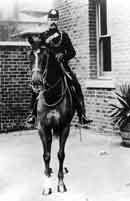


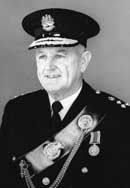
















 (Terrorist Mandela wins 1994 Nobel Peace Prize)
(Terrorist Mandela wins 1994 Nobel Peace Prize)
 The farm was purchased and run by Jewish Communist
The farm was purchased and run by Jewish Communist
 ANC IS A COMMUNIST JEWISH FRONT
ANC IS A COMMUNIST JEWISH FRONT







 Lieutneant Colonel G. B. Phillips - Commissioner of Police for Western Australia
Lieutneant Colonel G. B. Phillips - Commissioner of Police for Western Australia






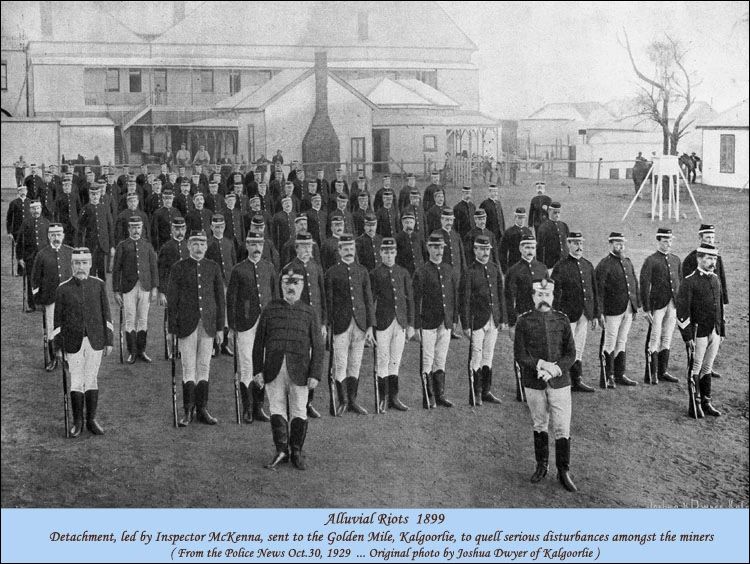






















 BRENDON O'CONNELL
BRENDON O'CONNELL








